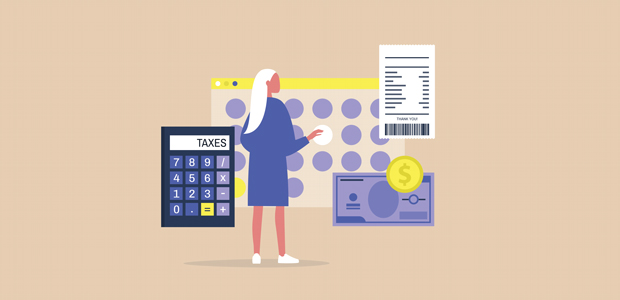
Startup Guide: How to Complete a Tax Return
If you’ve stumbled upon this article then the chances are, you’re on the cusp of submitting your very first tax return, with an impending HMRC deadline looming over you. Don’t worry if you’re feeling a little lost and confused at this point - you certainly aren’t alone. Tax returns are confusing, so we’re here with a whistle-stop step-by-step on how to complete your tax return.
Get an accountant to complete your tax return for you
That’s right - you can pass the whole ordeal over to somebody else and feel the weight of responsibility lift off your shoulders.
Not just anybody either. A qualified accounting professional or accountancy firm will have years of experience completing tax returns. This means they will be able to do it efficiently, on time, and with minimal risk of error.
The even better news is that it doesn’t necessarily have to be an accountant you hire full-time either. You can simply find a reputable accountant to prepare and file your tax return for you, and pay them a one-off fee for the pleasure.
One-off flat fees for completing tax returns are usually no more than £100 + VAT, so if you’ve got any wiggle room left in your budget, it would be cash well invested. After all, you can’t put a price on peace of mind.
How to complete a tax return yourself
Tax returns are a necessary evil. Nobody likes them, but to keep your business on the straight and narrow (and avoid hefty penalties from HMRC) they’ve got to be done.
The only way you’re excused, from a business point of view, is if your annual revenue is less than the £1,000 trading allowance. Anything over that and it’s time to submit an annual tax return.
Registering
Make sure you’re registered online via gov.uk. If you can’t register online, there are non-digital options for you to investigate - but most tax returns are now paperless. Registration can take a few weeks, so give yourself plenty of time.
Wait for your UTR (unique taxpayer reference) number to arrive in the post, and for your activation code. Once you have these, you can finish creating your online account - this is where you’ll submit your tax returns.
Entering the right information
Use the bank statements, financial records, invoices and receipts, and any pay slips from the tax year to fill out your return accurately.
HMRC will want to know how much you’ve earned, how you earned it, and the details of any tax that you have already paid. For example, if you’ve worked for an employer as well as doing some self-employed work, you’ll need to provide information about both.
HMRC ask a series of questions at the start of the return, making it easier for you to fill out the right sections.
Claiming allowances and expenses
Don’t forget to include the details of any costs that you incur as a result of doing business! For instance, the cost of buying equipment, or overheads like electricity and other utilities.
Include the costs in your return! You pay tax on profit, not on turnover, so deduct the expenses to work out your actual profit.
Lots of people don’t bother to claim their expenses because they’re worried about making a mistake, or aren’t sure what they’re allowed to include. Sadly, this means many businesses are paying too much tax. HMRC have lots of guidance on what you can claim.
Submitting your return and paying the bill
Once you finish entering all your information, HMRC will show a calculation of your tax bill. Double-check everything has been entered correctly, and submit it.
You must make sure you file your tax return and paid the bill by the January 31st deadline, or you’ll receive an immediate fine of £100 from HMRC. The longer you leave it after that, the higher the penalty so whatever you do, don’t miss that deadline.
Note: if you’re filling out a paper tax return, the completion deadline you’ll need to be aware of is October 31st.

